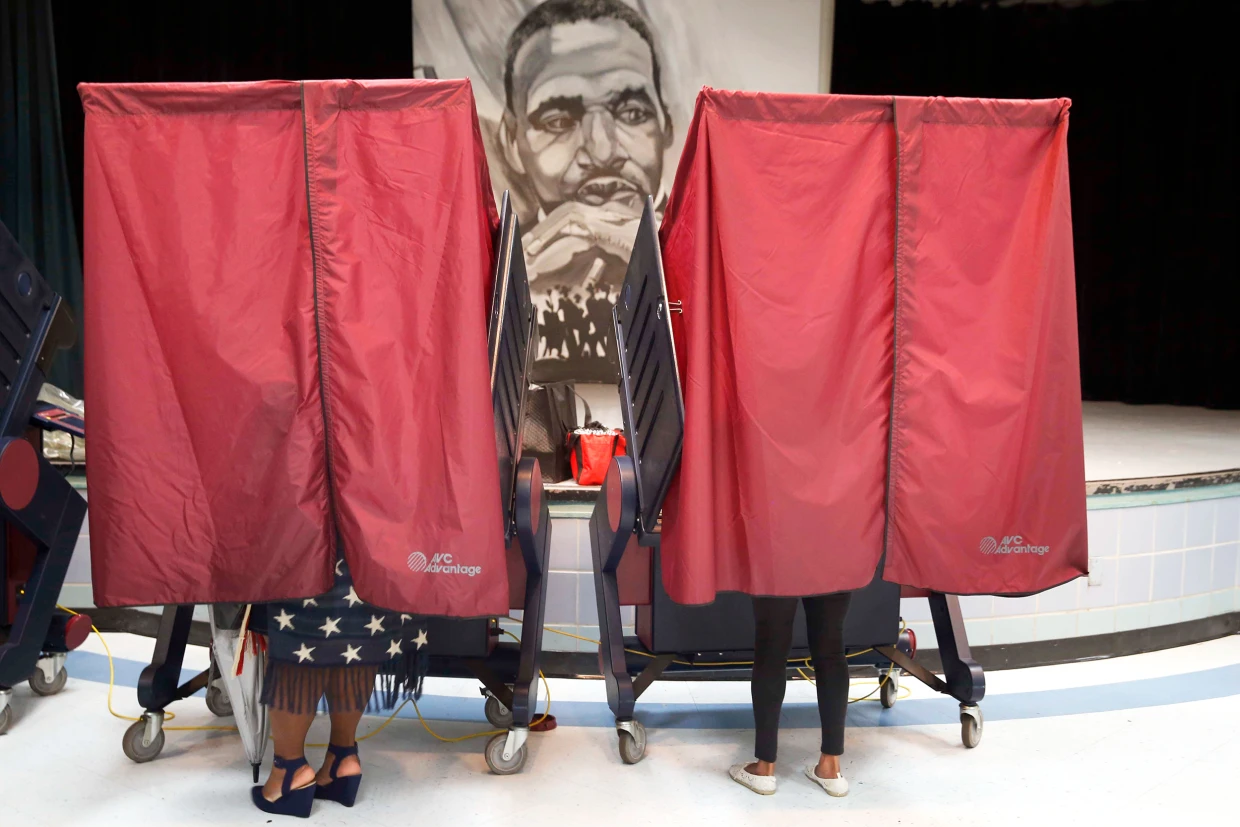By Zoe Richards
A federal court on Tuesday blocked Louisiana from using a congressional map signed into law this year that had been redrawn to include a second majority-Black district.
In a 2-1 vote, the three-judge panel of the U.S. District Court in Monroe, Louisiana, found that Senate Bill 8, which provided for the redistricting of congressional districts in the state, violated a clause in the 14th Amendment that ensures equal protection under the Constitution.
The case is likely to end up before the Supreme Court in another test of the Voting Rights Act.
“Having considered the testimony and evidence at trial, the arguments of counsel, and the applicable law, we conclude that District 6 of SB8 violates the Equal Protection Clause,” District Judges Robert R. Summerhays and David C. Joseph, both appointees of former President Donald Trump, wrote in the court’s opinion.
The judges said the state was not to use the map “in any future elections.”
A hearing was set for May 6 to discuss next steps.
In a statement, Paul Hurd, an attorney for the voters opposing the map, expressed gratitude “that the Court ruled in favor of the twelve courageous Plaintiffs who challenged the new districting plan.”
In their lawsuit challenging the redistricting map, the plaintiffs argued that “the State engaged in textbook racial gerrymandering” and that it violated civil rights protections under the 14th and 15th amendments when it drew a second majority-Black district to comply with an earlier court order.
The Louisiana secretary of state’s office has set May 15 as the deadline for the state’s congressional map to be finalized for use in this year’s elections.
It declined to comment on Tuesday’s ruling.
The map was redrawn, and Gov. Jeff Landry, a Republican, signed it into law in January after a federal court ruled in 2022 that the Legislature had illegally disenfranchised Black voters in its earlier redistricting plan.
Although Louisiana is nearly one-third Black, five of its six congressional districts are predominantly white.
The new map would reduce the Black voting-age population in Democratic Rep. Troy Carter’s district to 51%, while drawing a new 6th Congressional District as a narrow sliver through the heart of the state, from Shreveport to Baton Rouge. The Black voting-age population of that district would be 53%.
Carter blasted Tuesday’s ruling on X and urged the Supreme Court to “correct this immediately.”
In a dissenting opinion, Judge Carl E. Stewart pointed to the new map’s effort to address objections to the previous one raised under the Voting Rights Act.
“I worry that the panel majority’s decision fails to properly assess the history that led to S.B. 8 and, consequently, dooms us to repeat this cycle,” wrote Stewart, who was appointed by President Bill Clinton.
He added that the new map was “narrowly tailored to further the State’s compelling interests” in adhering to the Voting Rights Act’s protections against discriminatory voting practices and procedures.
The American Civil Liberties Union, which is involved in the case, signaled it plans to fight the ruling.
“This decision does not change the fact that a second Black majority district is required for Black voters in Louisiana to have an opportunity for fair and equal representation,” said Sarah Brannon, deputy director of the ACLU’s Voting Rights Project. “We will continue to fight for the fundamental right of Black Louisianians, whose voting power has continually and severely been diluted.”
The outcome of the fight over Louisiana’s map could play a significant role in November, when Republicans will be defending their narrow majority in the House.

